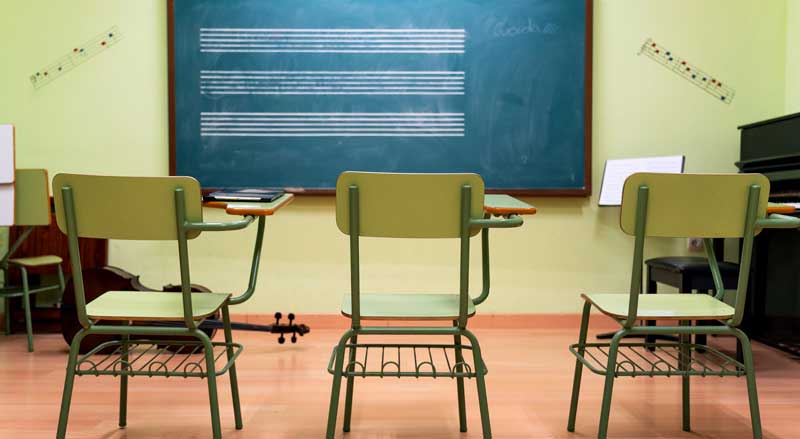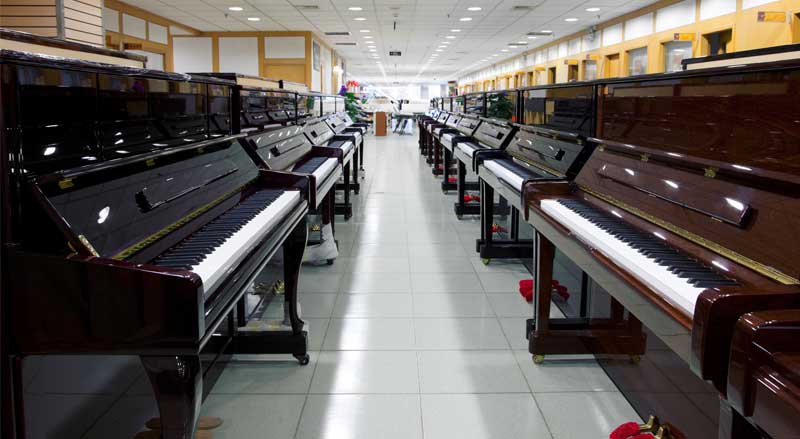
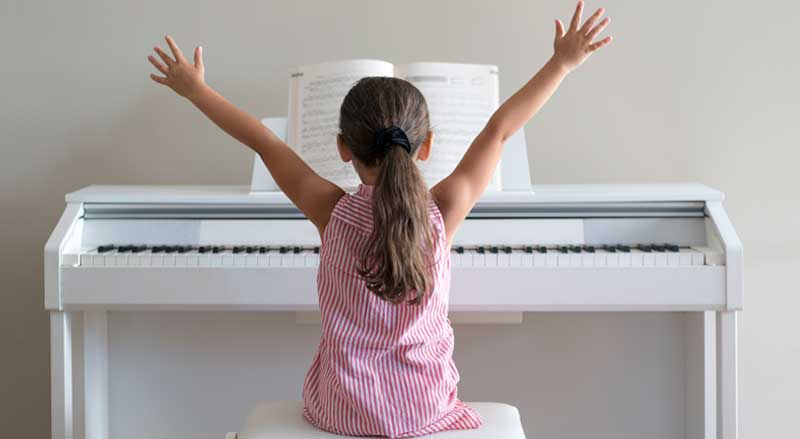
Are you considering piano lessons for your young child? Learning to play the piano can be a transformative and joyous experience musically, academically, and personally.
In this blog post, we’ll outline the five essential ingredients that contribute to successful piano lessons for young children.
As a parent, you play a crucial role in guiding your child toward musical success by focusing on these key points!
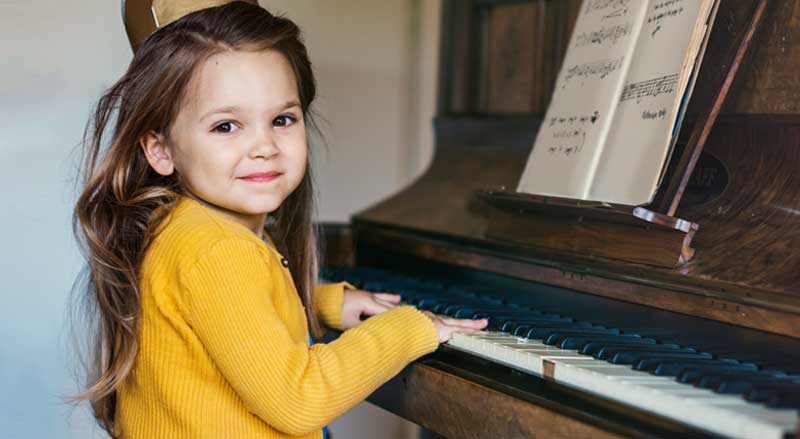
The cornerstone of any successful learning experience is genuine interest. For young children, this often stems from exposure to music in various forms. Cultivating a love for music is essential, whether through their favorite songs, musical movies, or simply playing with a keyboard.
Introduce your child to a wide range of musical instruments, allowing them to explore the unique musical sounds each instrument produces.
Encourage them to discover different music categories by playing different types of music at home. Additionally, you can expose them to various musical styles by tuning in to the radio during car rides or watching movies with engaging and solid soundtracks.
Allowing them to explore different genres and styles helps to stimulate their curiosity. When they are excited about music, they are more inclined to participate actively in their lessons and practice with enthusiasm.
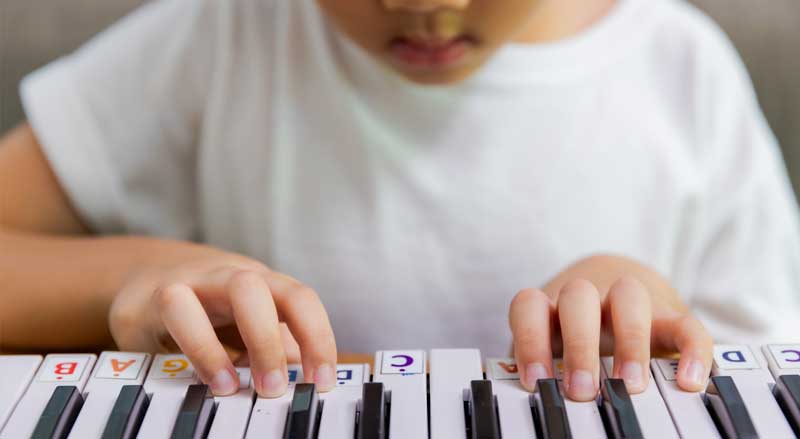
Having access to a suitable instrument is crucial for successful piano lessons. Depending on a child’s age and size, various options are available to support their abilities.
Each child is uniquely talented and may need multiple musical experiences before finding “their” instrument.
However, once their physical size allows, opting for a high-quality instrument is the most effective path to success.
An acoustic instrument provides the most genuine connection that any student or experienced musician can have when creating music. The natural sound produced by a student’s hands, recognized and interpreted by their own ear, is what truly leads to success!
With that in mind, numerous options suitable for beginner piano lessons for children. They must have an instrument to practice on between lessons.
While a traditional acoustic piano is ideal, it may not always be feasible for every family. In that case, consider using a good quality digital piano or keyboard with touch-sensitive keys or buying a used piano.
Once you acquire your child’s piano, place it in a comfortable, designated practice space that encourages regular play.
The right instrument makes practicing enjoyable and helps children connect better to their music.
Did you know there are 5 different types of pianos?
Here is some advice if you need help with choosing the right piano for your child.
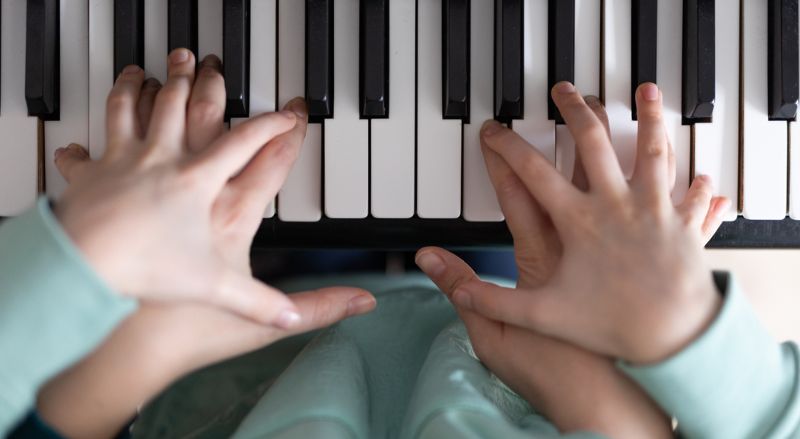
Our third ingredient differs among children and includes factors like age, size, and motor coordination.
All of these factors significantly impact the learning process.
A qualified music teacher can assist you in evaluating your child’s readiness. They can help create a music learning program tailored to their age and maturity level, ensuring you and your child feel prepared.
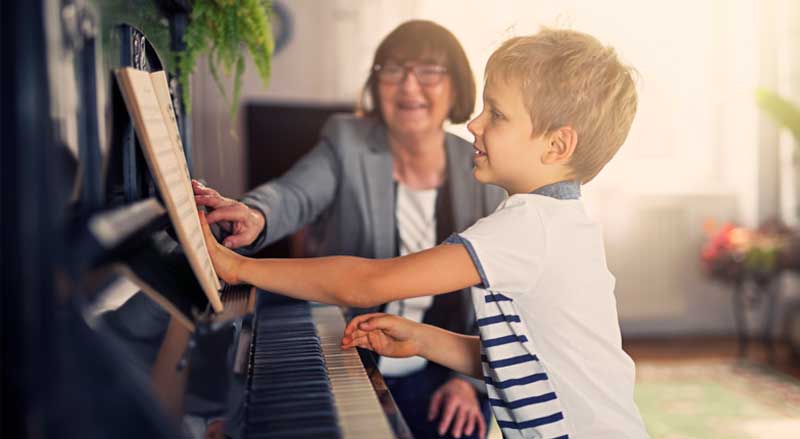
The piano teacher plays a significant role in shaping how kids learn and enjoy music.
Teachers should use fun and interactive methods to help children understand music while letting them work at their own pace.
A great teacher shares knowledge and creates a supportive and encouraging environment. They can inspire kids to be creative and passionate by making piano lessons enjoyable.
The right teacher can make learning piano fun and rewarding, setting a solid foundation for the child’s musical journey.
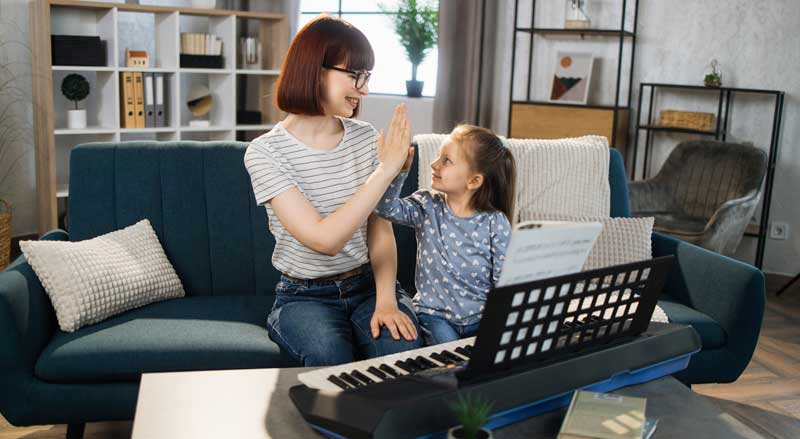
Finally, one of the most vital ingredients for achieving success in piano lessons comes from you!
Your support comes in many forms, some of which include:
These practices help strengthen the bond by inspiring children and enriching experiences through music.
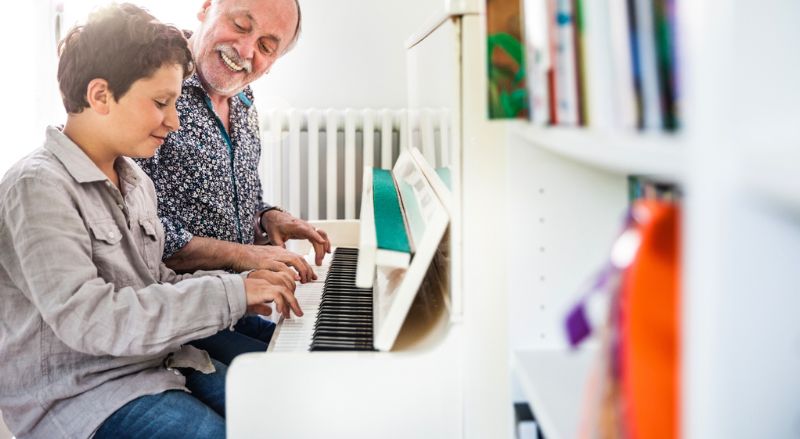
Focus on these five essential ingredients—interest, an instrument, emotional and physical maturity, the right piano teacher, and parental support. Help lead your child toward a successful piano learning experience.
Piano lessons can be an incredible journey, opening doors to creativity and self-expression. With the right support, the path to becoming a successful pianist can be as harmonious as the music they play.
Let’s work together to nurture their love for music, laying the groundwork for a future full of beautiful melodies and endless possibilities.
Are you ready to get started with piano lessons for your young child?
At B Natural Pianos & Music School, we encourage you to check out our large selection of new pianos and pre-owned pianos and consider enrolling your child in piano lessons today.
Contact us if you have a “Little Learner” aged 5 – 6. We offer a Free Trial Piano Lesson. Be sure to fill out our Trial Lesson Request Form.

